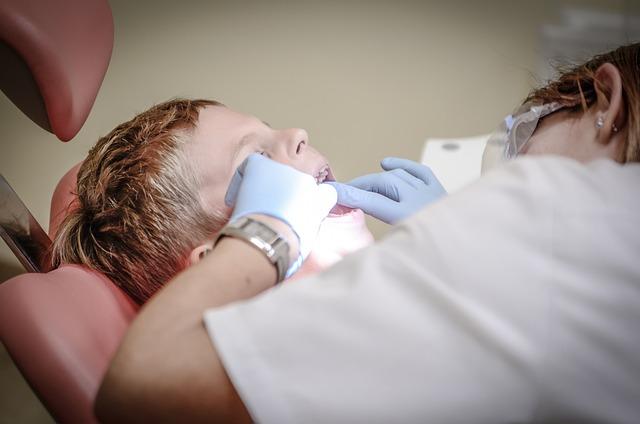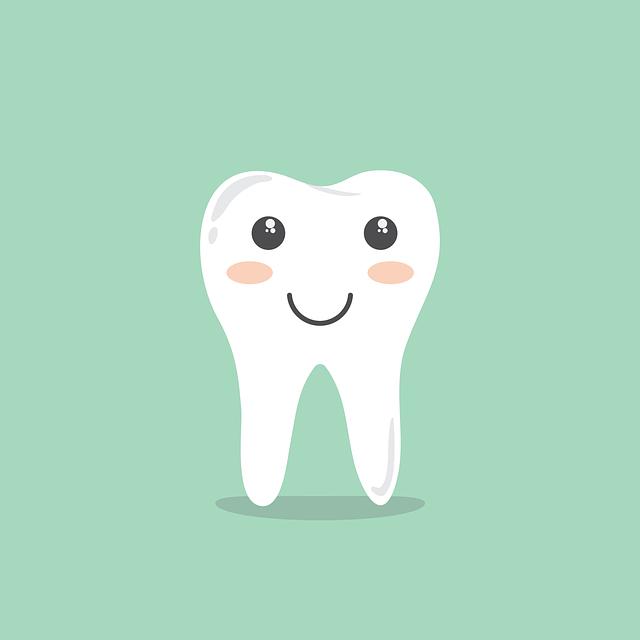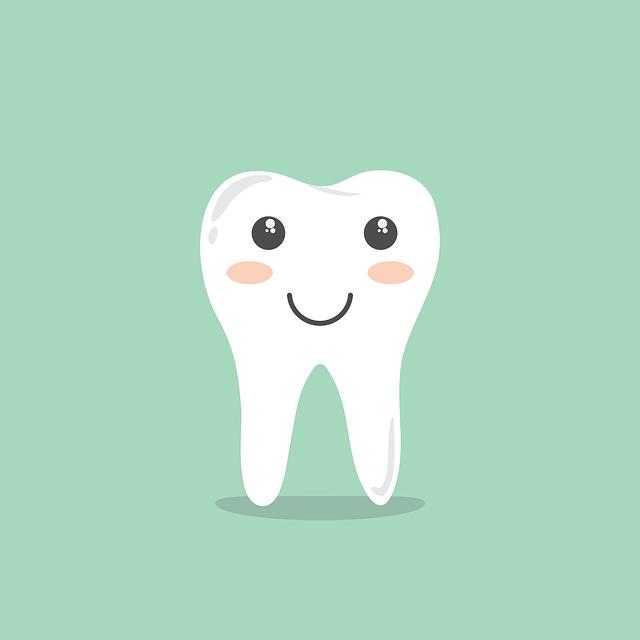Does Salt Water Make Teeth White: Exploring Claims
Are you curious about the magical powers of saltwater when it comes to achieving a sparkling white smile? With an abundance of information and countless claims circulating, it’s only natural to wonder: does saltwater really make teeth white? In this article, we will delve into the depths of this dental phenomenon, separating fact from fiction, and exploring the scientific evidence behind these claims. So, sit back, relax, and prepare to embark on a journey of dental enlightenment as we unravel the truth behind the mysteries of saltwater and its impact on teeth whitening.
1. Understanding the Claim: Can Salt Water Really Make Your Teeth White?
There is a popular belief that salt water can effectively whiten teeth, but is there any truth to this claim? Let’s delve into the science behind it and separate fact from fiction.
1. Salt water as a mild abrasive: Salt has been used for centuries as a natural abrasive for cleaning and exfoliating. When used in oral care, salt can help remove surface stains on teeth caused by common culprits like coffee, tea, and tobacco. However, it is essential to note that salt water alone cannot penetrate the enamel to remove deeper stains.
2. Salt water as a rinse: Salt water rinses can have some benefits for oral health, including reducing inflammation, soothing gum infections, and promoting healing after oral surgeries. While salt water may not directly whiten teeth, it can contribute to an overall healthier mouth and gum tissue, providing a fresher appearance to the smile.
3. Professional whitening vs. salt water: For more noticeable and lasting teeth whitening results, professional treatments offered by dentists remain the most reliable option. These treatments use peroxide-based agents to actively break down and remove stains from the enamel, resulting in a brighter smile. Salt water, on the other hand, can serve as a complementary and maintenance tool to help maintain the whiteness achieved through professional whitening methods.
2. Debunking the Myth: Separating Fact from Fiction
There are numerous myths and misconceptions that surround various topics, and it is essential to separate fact from fiction to gain a clear understanding. In this section, we will debunk some common myths, providing you with accurate information to dispel any confusion.
Myth 1: Vaccines cause autism.
Fact: Extensive scientific research has conclusively shown that there is no link between vaccines and autism. Numerous studies involving millions of children have consistently found no evidence to support this claim. Vaccines are crucial in preventing the spread of dangerous diseases and are extensively tested for safety before being approved for use.
Myth 2: Humans only use 10% of their brain.
Fact: This popular myth has been debunked by neuroscientists who confirm that humans use the majority of their brain throughout the day. Every part of the brain serves a specific function, and even during activities that may seem mundane, multiple areas of the brain are active simultaneously. The notion that we possess untapped potential is unfounded.
Myth 3: Cracking knuckles leads to arthritis.
Fact: Contrary to popular belief, cracking knuckles does not cause arthritis. The sound you hear when cracking knuckles is a result of gas bubbles being released from the joints. Multiple studies have found no evidence to support the notion that knuckle cracking leads to joint problems. However, excessive cracking may cause temporary swelling or reduced grip strength.
By debunking these myths, we hope to provide you with accurate information based on scientific evidence. It is essential to rely on reliable sources and research to distinguish fact from fiction and make informed decisions in various aspects of life.

3. The Science Behind Salt Water and Teeth Whitening: Exploring the Effects
Salt water has been used for centuries as a natural remedy for various dental issues, including teeth whitening. The science behind this practice lies in the unique properties of salt and its effects on our teeth. Here’s a closer look at how salt water can help in achieving a brighter smile:
1. Oral hygiene: Salt water acts as a powerful disinfectant, killing harmful bacteria in our mouths. When used as a mouthwash, it can help reduce plaque buildup, prevent gum disease, and promote overall oral health. The mechanical action of swishing salt water around our mouths also helps in dislodging food particles and debris, further enhancing cleanliness.
2. Stain removal: The abrasive nature of salt makes it an effective natural exfoliant. When combined with water, it creates a mild abrasive solution that can gently remove surface stains from the teeth. This can be particularly beneficial for those who consume staining substances like coffee, tea, or tobacco.
3. pH balance: Salt water has a neutral pH level, which is close to the natural pH of our mouths. This helps maintain a healthy oral environment by neutralizing acidity and reducing the risk of tooth erosion. Additionally, salt water can stimulate saliva production, aiding in the remineralization of enamel and strengthening the teeth.
It’s important to note that while salt water can provide some benefits for teeth whitening, it may not produce dramatic results compared to professional dental treatments. Regular brushing, flossing, and professional cleanings should still be prioritized for optimal oral health.
4. A Closer Look at the Benefits of Salt Water Rinse for Oral Health
Salt water rinse, also known as saline solution, is a simple yet effective method to maintain oral health. This natural remedy has been used for centuries due to its numerous benefits. Here, we delve into the advantages of incorporating salt water rinse into your daily oral care routine:
- Reduces inflammation: Salt water rinse has anti-inflammatory properties that can help alleviate gum inflammation and swelling. It works by drawing out fluid from the tissues, thus reducing pain and discomfort.
- Heals wounds: If you have recently undergone oral surgery or have a mouth sore, salt water rinse can expedite the healing process. The solution helps cleanse the wound, prevent infection, and promote tissue regeneration.
- Fights bacteria: Salt water rinse acts as a natural disinfectant, killing harmful bacteria in the mouth. This can be particularly beneficial for those with gum disease or frequent tooth infections.
When using salt water rinse, it is important to remember a few key points. First, make sure to use warm water to dissolve the salt completely. Secondly, swish the solution around your mouth for about 30 seconds before spitting it out. Lastly, avoid swallowing the rinse as it may lead to dehydration or an upset stomach.

5. Exploring Alternative Natural Remedies for Teeth Whitening
Teeth whitening has become a popular trend in recent years, with many people seeking a brighter, more confident smile. While there are numerous commercial products available, some individuals may prefer . Here, we will delve into a few tried and tested methods that can help brighten your smile using ingredients commonly found in nature.
1. Activated Charcoal: This black powder may seem counterintuitive for teeth whitening, but it has proven to be effective in removing stains and discoloration. Activated charcoal works by adsorbing surface stains and toxins, leaving your teeth looking whiter and brighter. To use, simply wet your toothbrush, dip it into the activated charcoal powder, and brush your teeth gently for a couple of minutes. Rinse thoroughly afterward.
2. Baking Soda and Lemon Juice: A classic combination for teeth whitening, baking soda and lemon juice can work wonders when used correctly. Mix a small amount of baking soda with freshly squeezed lemon juice to form a paste. Apply this paste to your teeth using a toothbrush or your finger and leave it on for a minute or two. Rinse your mouth thoroughly to remove any residue. Be cautious with this method, as excessive use may damage your tooth enamel.
3. Oil Pulling: An ancient Ayurvedic practice, oil pulling has gained attention for its potential teeth whitening benefits. This technique involves swishing oil, such as coconut or sesame oil, in your mouth for 15-20 minutes. The oil is believed to pull out toxins and impurities, including stains, from your teeth and gums. Afterward, spit out the oil and rinse your mouth thoroughly with water. It’s important to note that oil pulling should not replace regular brushing and flossing, but can serve as a supplemental practice for maintaining a bright smile.
Remember, while these natural remedies have shown promising results, it’s always advisable to consult with a dentist before incorporating them into your oral care routine.
6. Expert Opinions: What Dentists Have to Say about Salt Water and Teeth Whitening
When it comes to salt water and teeth whitening, dentists have varying opinions on its effectiveness. While some dentists believe that rinsing with salt water can help remove surface stains and improve overall oral health, others are more skeptical.
Proponents of salt water rinses argue that the natural antiseptic properties of salt can help kill bacteria in the mouth and reduce the risk of gum disease and tooth decay. Additionally, salt water acts as a gentle abrasive, which can help remove superficial stains from the teeth.
However, it is important to note that salt water rinses alone may not be sufficient for achieving significant teeth whitening results. Dentists often recommend combining salt water rinses with other whitening methods, such as professional teeth whitening treatments or whitening toothpaste, for optimal results. It’s also important to consult with a dentist before starting any teeth whitening regimen to ensure it’s suitable for your specific dental needs and to avoid any potential side effects.
In conclusion, while salt water rinses can have some benefits for oral health and may help remove surface stains, it is not a standalone solution for teeth whitening. Consulting with a dentist and considering other whitening methods is recommended for achieving the best results.

7. The Role of Salt Water in Maintaining Overall Dental Hygiene
When it comes to maintaining overall dental hygiene, salt water plays a crucial role. This natural remedy has been used for centuries to promote oral health and prevent various dental issues. Here are some key points highlighting the significance of salt water in dental care:
- Antibacterial properties: Salt water acts as a natural disinfectant, killing harmful bacteria in the mouth. Its antimicrobial properties help reduce the risk of gum infections, tooth decay, and bad breath.
- Relieves pain and inflammation: Rinsing with salt water can provide relief from toothaches and sore gums. The salt helps reduce swelling and soothes irritated tissues, promoting faster healing.
- Removes food particles: Salt water rinses are effective in dislodging food particles stuck between teeth and along the gum line. This helps prevent plaque buildup and reduces the chances of developing cavities.
- Refreshing and cleansing: Salt water rinses leave the mouth feeling fresh and clean. It helps remove debris, neutralize acids, and maintains a healthy pH balance, which is crucial for overall oral health.
By incorporating salt water rinses into your oral hygiene routine, you can harness the natural benefits it offers to keep your teeth and gums healthy. Remember to use a saltwater solution made with warm water and a teaspoon of salt, and swish it around your mouth for about 30 seconds before spitting it out.
8. Examining the Potential Side Effects of Using Salt Water for Teeth Whitening
While salt water has gained popularity as a natural remedy for teeth whitening, it is essential to consider the potential side effects before incorporating it into your oral care routine. Although generally safe to use, there are a few considerations to keep in mind:
- Tooth Sensitivity: Salt water may aggravate tooth sensitivity in some individuals. If you already experience sensitivity, it is advisable to consult with your dentist before using salt water for teeth whitening.
- Gum Irritation: The abrasive nature of salt water can potentially cause gum irritation or inflammation. It is important to use salt water in moderation and rinse your mouth thoroughly after each use to minimize the risk of irritation.
- Enamel Erosion: Excessive use of salt water as a teeth whitening agent can lead to enamel erosion over time. To prevent this, it is recommended to limit the frequency of salt water treatment and ensure you maintain a balanced oral care routine.
While these side effects are not common, it is crucial to understand and assess your individual oral health needs before incorporating salt water into your teeth whitening regimen. Consulting with your dentist is always a wise decision to ensure the safety and effectiveness of any teeth whitening method.
9. Is Salt Water Rinse a Cost-Effective Teeth Whitening Solution?
Salt water rinse is often touted as a cost-effective teeth whitening solution. While it may have some benefits, it is important to understand its limitations. Here are a few things to consider before incorporating salt water rinse into your teeth whitening routine:
1. **Gentle stain removal:** Salt water rinse can help remove surface stains from your teeth. Its gentle abrasive properties make it effective in removing some extrinsic stains caused by coffee, tea, or smoking. However, it may not be as effective in removing deeper intrinsic stains or discoloration caused by factors like aging or medication.
2. **Natural antibacterial properties:** Salt has natural antibacterial properties, which can help reduce the bacteria in your mouth that contribute to plaque buildup and tooth decay. Rinsing with salt water can promote a healthier oral environment and prevent certain oral health issues.
3. **Limitations on whitening:** While salt water rinse can help maintain a healthy smile, it might not give you the dramatic whitening effects you desire. Professional teeth whitening treatments, such as those offered by dentists, use stronger bleaching agents to achieve significant results. If you’re looking for a more noticeable whitening effect, it is advisable to consult with a dental professional.
In conclusion, salt water rinse can be a cost-effective and natural addition to your oral hygiene routine, helping remove surface stains and maintaining oral health. However, for more significant teeth whitening results, it is recommended to explore professional treatments or other over-the-counter whitening products.
10. Conclusion: Understanding the Limitations of Salt Water for Teeth Whitening
Understanding the limitations of salt water for teeth whitening is crucial before considering it as a viable option. While salt water may have some benefits for oral health, it is important to note that it is not a substitute for professional teeth whitening procedures. Here are some key points to consider:
1. Temporary Whitening: Salt water can help remove certain surface stains on teeth, giving the illusion of a slightly whiter smile. However, this effect is temporary and may not be as noticeable as other whitening methods.
2. Limited Effectiveness: Salt water’s ability to whiten teeth is limited to its mild abrasive properties. It can help remove some extrinsic stains caused by factors like coffee or tobacco, but it cannot penetrate deep into the tooth enamel to remove intrinsic stains.
3. No Bleaching Agent: Unlike professional whitening treatments, salt water does not contain any bleaching agents. Therefore, it cannot alter the natural color of your teeth or provide significant whitening results.
While salt water can be beneficial for maintaining oral hygiene and reducing inflammation, it is important to manage expectations when it comes to teeth whitening. For more noticeable and long-lasting results, consulting with a dental professional is recommended.
Frequently Asked Questions
Q: Does salt water make teeth white?
A: While there are claims that salt water can make teeth white, the evidence supporting this notion is limited and inconclusive.
Q: What are the supposed benefits of using salt water for teeth whitening?
A: Proponents argue that rinsing with salt water can remove stains, reduce plaque, and promote overall dental health. However, it is important to examine these claims critically.
Q: Is there any scientific evidence to support the idea that salt water can whiten teeth?
A: Currently, there is a lack of scientific studies specifically examining the teeth-whitening effects of salt water. The available evidence is mostly anecdotal and lacks the rigorous scientific methodology required for conclusive results.
Q: How does salt water interact with teeth?
A: Salt water, or saline solution, has a relatively neutral pH, which means it has no acidic or alkaline properties that could harm tooth enamel. However, it is important to note that salt water alone may not be sufficient to achieve significant teeth whitening.
Q: Can salt water remove stains from teeth?
A: While salt water may have some mild abrasive properties, it is unlikely to remove deep stains caused by factors such as tobacco, coffee, or certain medications. Professional dental treatments or over-the-counter whitening products are generally more effective in addressing such stubborn stains.
Q: Does rinsing with salt water reduce plaque?
A: Some studies suggest that salt water rinses can help reduce the buildup of plaque, which is a sticky film of bacteria that can contribute to tooth decay. However, regular brushing, flossing, and professional cleanings remain the most effective ways to combat plaque buildup.
Q: Are there any potential risks associated with using salt water for teeth whitening?
A: Salt water rinses are generally considered safe for most people when used as directed. However, excessive or prolonged use may lead to mouth dryness or irritation. It is always best to consult with a dental professional before attempting any new oral care regimen.
Q: What are the alternative options for teeth whitening?
A: There are numerous teeth whitening options available, including professional dental treatments, over-the-counter whitening kits, and natural remedies. Consulting with a dentist can help determine the most suitable approach based on individual needs and desired results.
Q: What is the conclusion regarding the claim that salt water can whiten teeth?
A: While salt water has some potential benefits for dental health, it is unlikely to provide significant teeth whitening effects on its own. For more noticeable results, individuals should consider professional dental treatments or other established teeth whitening methods.
Closing Remarks
In conclusion, after exploring the claims surrounding the idea of salt water making teeth white, it is clear that there is no scientific evidence to support this notion. While salt water may have some benefits for oral health, such as reducing inflammation and killing bacteria, there is no direct link between using salt water and achieving whiter teeth. It is important to rely on proven methods, such as regular brushing, flossing, and professional dental treatments, to maintain a healthy and bright smile. It is always advisable to consult with a dentist for personalized advice and guidance on teeth whitening options. Remember, when it comes to your dental health, it’s best to rely on science-backed facts rather than unsubstantiated claims.






